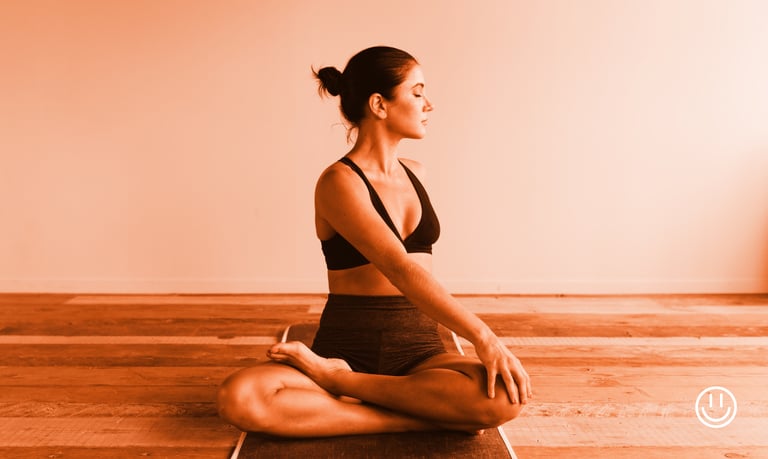Small Changes for a Big Impact – Start Now
SCALE UP


Start today and witness how small changes can create a big impact on your life. Discover simple ways to begin your journey toward positive change today.
In the midst of increasingly busy and high-pressure lives, many people are seeking ways to manage stress, improve their well-being, and reach their fullest potential. One increasingly popular method is through the practice of mindfulness. Mindfulness is the ability to be fully present in the current moment without judgment or being distracted by racing thoughts. By practicing mindfulness regularly, we can not only manage stress but also improve our overall quality of life. This article will discuss practical steps to practice mindfulness and how it can help you scale up your life.
1. Understand the Concept of Mindfulness
Before starting the practice, it’s important to understand what mindfulness is. At its core, mindfulness is open and attentive awareness of our present experiences. It means observing what is happening in our body, mind, and emotions without judgment or emotional reactions. Mindfulness teaches us to accept reality as it is, without feeling pressured to change it.
In other words, mindfulness is not about trying to empty the mind or achieving eternal peace, but rather becoming more aware of what is present, whether it's feelings, thoughts, or surrounding situations.
2. Start with Simple Breathing
The first step to practicing mindfulness is focusing your attention on your breathing. Breathing is a very powerful tool to help us stay present and aware. Try sitting in a comfortable position and take a deep breath through your nose, then exhale slowly through your mouth. Focus your attention solely on your breath—feel the air entering and leaving your body.
If your mind starts to wander, that's completely normal. When it happens, gently bring your attention back to your breath without judging yourself. This is the foundation of mindfulness practice: accepting thoughts as they come and go without getting caught up in them.
3. Practice Mindfulness Meditation
Meditation is a deeper way to cultivate mindfulness. You can start with short meditation sessions of about 5 to 10 minutes. Find a quiet place and sit comfortably. Focus your attention on your breathing, or if you prefer, use a simple mantra repeated silently to help maintain your focus.
Additionally, you can try a body scan technique, where you gradually direct your attention to different parts of your body, from your toes to your head, noticing any sensations or tension. This technique helps increase body awareness and deepens your connection with yourself.
4. Practice Mindfulness in Daily Activities
One of the best ways to integrate mindfulness into daily life is by practicing it during routine activities. Start with simple activities like eating, walking, or even washing dishes. Fully focus your attention on what you are doing. Notice the taste, aroma, texture, and sounds, or observe your body movements as you walk.
For instance, while eating, try to savor each bite mindfully, noticing the texture, flavor, and aroma of the food. This helps you stay present in the moment and reduces distraction from racing thoughts.
5. Train Your Mind to Be More Open and Non-Judgmental
Mindfulness also involves having an open and non-judgmental attitude toward our thoughts and feelings. Many of us tend to label our thoughts and feelings as "good" or "bad" or become trapped in negative emotional experiences. Mindfulness teaches us to recognize our feelings and thoughts without judging or getting caught up in them.
Try to observe your thoughts without overreacting. When anxiety, fear, or anger arises, see them as things that come and go. You are not your emotions or thoughts—they are merely parts of your current experience, which can be accepted and released with awareness.
6. Observe Its Impact on Your Life
By practicing mindfulness regularly, you will start to notice its impact on your daily life. You may feel calmer, more focused, and better able to manage stress. Mindfulness can also improve the quality of interpersonal relationships because you become more present and sensitive to others’ feelings.
Moreover, mindfulness can enhance your physical and mental well-being, improve sleep quality, and help you make wiser and more rational decisions. You will feel more connected to yourself and your surroundings, enabling you to live a more meaningful life.
7. Make Mindfulness a Lifestyle
To achieve real transformation, it’s important to make mindfulness a part of your lifestyle, not just an occasional practice. This means cultivating the habit of being present in every moment, not only during meditation but also when interacting with others, working, or resting.
By incorporating mindfulness into your daily routine, you will see significant changes in how you respond to life’s challenges. Mindfulness will help you remain calm and wise in facing various situations and enhance your ability to focus on what truly matters.
Conclusion
Mindfulness is a powerful tool for improving your quality of life and reaching your fullest potential. Through mindfulness practice, you can reduce stress, enhance focus, and build healthier relationships with yourself and others. By following simple steps like focusing on breathing, meditating, and mindfully engaging in daily activities, you can begin integrating mindfulness into your life. Ultimately, mindfulness is not just a mental exercise—it’s a way of life that can help you scale up your life to a higher level.
Start now and see how these small changes can create a big impact on your life.
